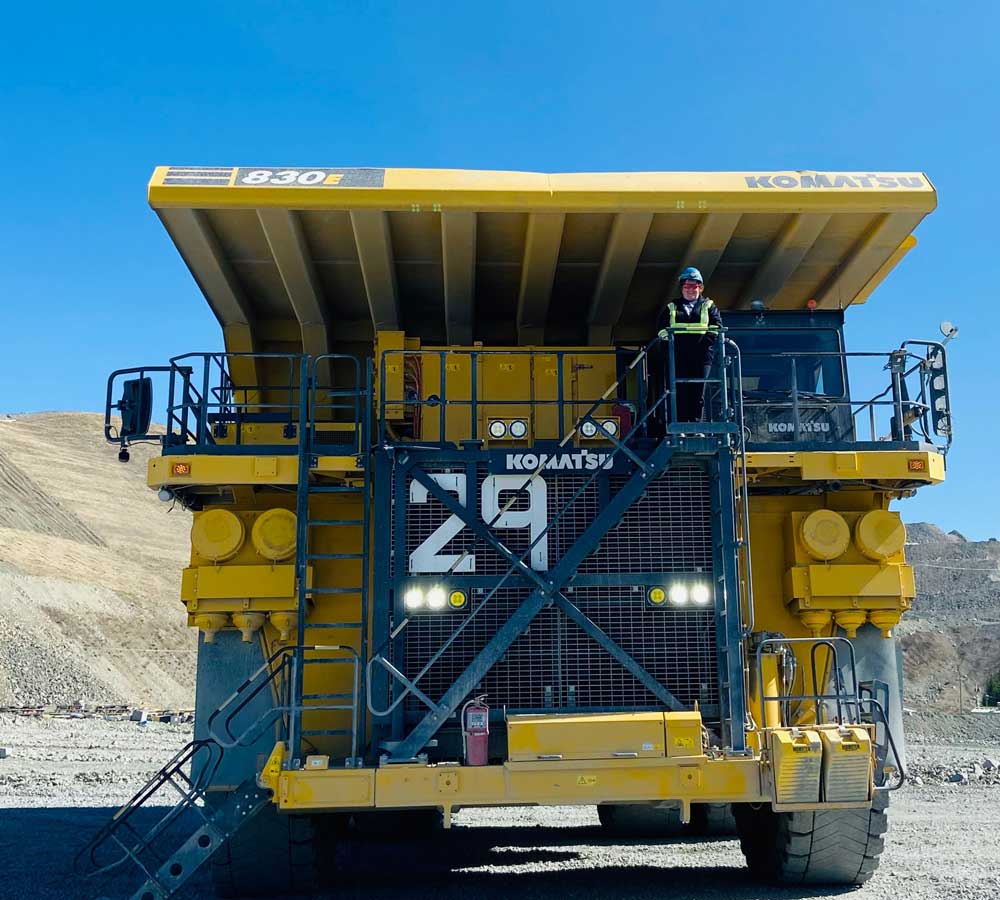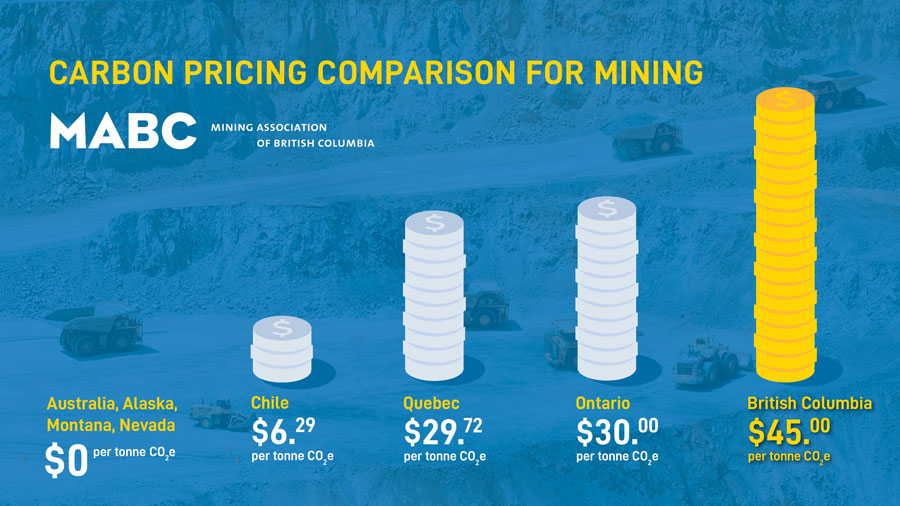According to Skarn Associates, a leader in quantifying and benchmarking greenhouse gas (GHG) emissions across the mining sector, BC has some of the lowest GHG-emitting mines and smelters on the planet, thanks to our early adoption and ongoing use of clean hydroelectricity at our operations.
Carbon
Pricing
MABC's regularly encourages governments to make decisions related to mining that support achieving the goals and targets of the Paris Agreement. This includes recognizing the importance of a price on carbon as an incentive to encourage businesses and individuals to implement low-carbon technologies and reduce their emissions.
BC’s mines and smelters are among the lowest GHG-intensive in the world

Although BC mines already have low carbon intensity, MABC’s members are working to further reduce emissions, with many implementing net zero by 2050 or sooner commitments. However, many of the technologies needed to reduce or eliminate emissions are still in development or in the early stages of availability, and the incremental reductions are often very expensive.

BC’s mines pay the highest carbon tax in the world
Despite our low-emission operations, BC’s mines and smelters pay the highest functional carbon tax of any major mining jurisdiction in the world.
Although Canadian jurisdictions generally have a similar ‘sticker price’ for carbon tax, every province other than British Columbia provides significant protection for their trade-exposed sectors – including mining. BC is also the only mining jurisdiction in the world that does not provide meaningful carbon pricing supports to industries that sell into global markets. This puts BC mines, communities, and people whose jobs depend on mines and smelters at a competitive disadvantage that limits our economic opportunities and ability to play a bigger role in achieving our shared climate objectives.
BC’s carbon pricing must be adjusted to allow trade exposed sectors to compete fairly with jurisdictions that don’t pay a carbon tax or don’t pay enough. Failing to do so will likely result in ‘carbon leakage’; a situation where investment and industrial activity ‘leaks’ from BC to other jurisdictions with lower carbon pricing – and potentially lower environmental standards and labour protections. This leads to higher global emissions, fewer jobs for British Columbians and less revenue for government.
The federal government has announced the carbon tax will more than triple from the current $50/tonne to $170/tonne by 2030, which the BC provincial government has committed to match. Without protections from these increases, the competitive position of BC mines will deteriorate further, along with the working capital needed to invest in ongoing decarbonization.


Carbon Pricing Solutions
MABC recommends the BC government implement two key policy changes to create a made-in-BC carbon pricing framework that is both effective in reducing emissions and enhances competitiveness.
1. Carbon Tax
Despite our low-emission operations, BC’s mines and smelters have been investing in further decarbonization for some time. Many are preparing to achieve the goals and targets of the Paris Agreement and are taking concrete steps to get there. For example:
The Copper Mountain Mine has installed a 1-kilometre-long overhead trolley track that enables 11 haul trucks to run on clean electricity instead of diesel, thereby reducing GHG emissions by some 55,000 tonnes every year. Newcrest’s Brucejack Mine is adding seven new battery electric haul trucks, eliminating 7,000 tonnes of GHGs annually. Teck and Caterpillar are working towards deploying 30 zero-emissions haul trucks at their operations by 2030.
Many of these initiatives have received support from the existing CleanBC Program for Industry, which is funded primarily from carbon tax revenues collected from mines, smelters and other industries. To help achieve the sectoral and total GHG emissions targets of CleanBC, MABC is encouraging the BC government to return more carbon tax dollars to allow our members to invest in decarbonization projects by expanding availability and eligibility of the CleanBC Program for Industry. Our members will match these funds and invest in projects to reduce GHG emissions further and faster. This policy change was also recommended by the provincial government’s own Climate Solutions Council recommended to the Minister of Environment and Climate Change Strategy.
2. Emissions Credit and Trading Mechanisms
MABC continues to advocate for credible emissions trading and credit systems to help achieve emissions reduction targets within the BC Government’s Road Map for 2030 and broader Paris Agreement climate commitments. Offset mechanisms are a critical tool as carbon abatement technologies transition from research and development to being commercially available. MABC is encouraging the provincial government to develop a carbon offset program for mining and smelting operations to smooth these transitions.
MABC is also encouraging federal authorities to accelerate efforts with international counterparts to establish workable emissions credit trading systems as contemplated under Article 6 of the Paris Agreement.